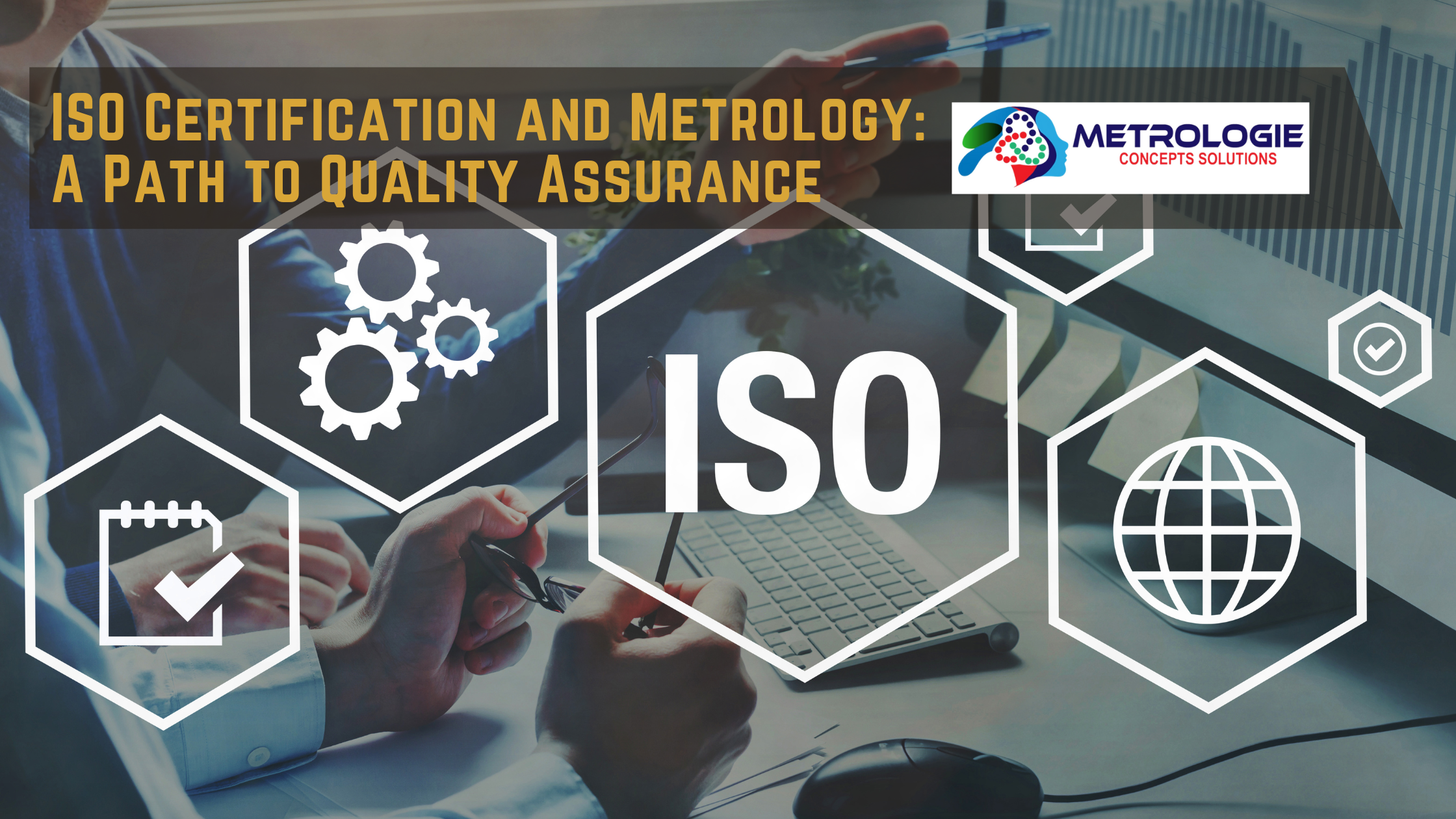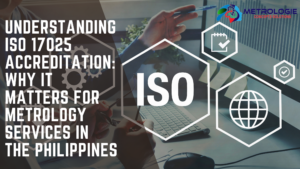Learn about ISO Certification and Metrology: A Path to Quality Assurance. Understand the importance, benefits, and implementation of ISO standards for ensuring quality in your organization.
ISO Certification and metrology are two critical elements in ensuring quality assurance within various industries. ISO Certification provides a framework for organizations to establish and maintain effective quality management systems, while metrology ensures the accuracy and reliability of measurements. This article explores the intersection between ISO Certification and metrology, highlighting their importance and benefits in achieving quality assurance.
Introduction
Quality assurance is paramount in today’s competitive market, where customer satisfaction is key to success. ISO Certification and Metrology: A Path to Quality Assurance ensures that products and services meet stringent quality standards. Let’s delve into the world of ISO certification and metrology to understand its significance.
Definition of ISO Certification and Metrology
ISO Certification refers to the process of certifying a company’s management system against internationally recognized standards set by the International Organization for Standardization (ISO). Metrology, on the other hand, deals with the science of measurement and its application. Together, they form the cornerstone of quality assurance in various industries.
Understanding ISO Certification
What is ISO Certification? ISO Certification validates that a company operates according to international standards in areas such as quality management, environmental management, information security, and more. It provides credibility and demonstrates commitment to quality.
Benefits of ISO Certification ISO Certification enhances credibility, improves customer satisfaction, increases operational efficiency, and opens doors to new markets by demonstrating compliance with global standards.
What is ISO Certification?
ISO Certification, issued by the International Organization for Standardization (ISO), signifies that an organization conforms to specific standards and requirements in its processes, products, or services. It demonstrates a commitment to quality, customer satisfaction, and continuous improvement.
Importance of ISO Certification in Quality Assurance
ISO Certification plays a crucial role in enhancing customer confidence, improving operational efficiency, and facilitating access to new markets. It provides a structured approach to quality management, leading to consistent and reliable outcomes.
Metrology: Ensuring Accuracy
Definition of Metrology Metrology is the science of measurement, including units, standards, and instruments used for measurement. It ensures accuracy and consistency in measurements, crucial for quality assurance.
Role of Metrology in Quality Assurance Metrology plays a vital role in verifying product quality, ensuring conformity to specifications, and maintaining consistency in manufacturing processes. Accurate measurements are essential for meeting regulatory requirements and customer expectations.
Definition and Scope of Metrology
Metrology is the science of measurement, encompassing all aspects related to measurement accuracy, precision, and traceability. It includes calibration, verification, and validation processes to ensure the reliability of measurement results.
Role of Metrology in Quality Management
Metrology is fundamental to quality management as it underpins the reliability and validity of quality measurements. By establishing traceable and accurate measurement systems, metrology ensures consistency and conformity to standards.
The Relationship Between ISO Certification and Metrology
How ISO Standards Incorporate Metrological Principles
ISO Standards, particularly those related to quality management (e.g., ISO 9001), incorporate metrological principles to ensure the accuracy and reliability of measurement processes. They emphasize the importance of calibration, measurement traceability, and competency of personnel.
Ensuring Compliance with Metrological Requirements in ISO Certification
Organizations seeking ISO Certification must adhere to metrological requirements outlined in relevant standards, such as ISO/IEC 17025 for laboratory accreditation. This involves implementing robust measurement processes, maintaining calibration records, and participating in proficiency testing.
Benefits of Implementing ISO Standards in Metrology
Implementing ISO Standards in metrology offers numerous benefits to organizations, including:
Improved Accuracy and Precision
ISO-compliant measurement systems ensure the accuracy and precision of measurements, leading to reliable and consistent results. This reduces the risk of errors and improves product quality.
Enhanced Quality Assurance Processes
ISO Certification promotes a culture of quality within organizations, fostering continuous improvement and risk management. By aligning with ISO Standards, metrology practices become more robust and efficient.
Global Recognition and Market Access
ISO Certification enhances the credibility and reputation of organizations in domestic and international markets. It provides a competitive edge by demonstrating compliance with globally recognized standards.
Key ISO Standards Related to Metrology
Several ISO Standards are directly relevant to metrology, including:
ISO 9001: Quality Management Systems
ISO 9001 provides a framework for organizations to establish quality management systems, emphasizing customer satisfaction and process improvement. It includes requirements for measurement equipment calibration and maintenance.
ISO/IEC 17025: Laboratory Accreditation
ISO/IEC 17025 specifies the general requirements for the competence of testing and calibration laboratories. It outlines criteria for laboratory management, technical competence, and measurement traceability.
ISO 10012: Measurement Management Systems
ISO 10012 provides guidelines for the development and implementation of measurement management systems. It assists organizations in establishing measurement processes that meet metrological requirements.
Steps to Achieve ISO Certification in Metrology
Achieving ISO Certification in metrology involves several steps, including:
Conducting Gap Analysis
Organizations assess their existing metrology practices against ISO Standards to identify gaps and areas for improvement.
Implementing Necessary Changes
Based on the gap analysis, organizations implement changes to align with ISO requirements, such as upgrading measurement equipment and training personnel.
Documentation and Training
Documentation of procedures, work instructions, and quality records is essential for ISO Certification. Training programs ensure staff competency in metrological practices.
Internal Audits and Pre-assessment
Internal audits verify compliance with ISO Standards, identifying non-conformities and opportunities for improvement. Pre-assessment prepares organizations for the final certification audit.
Challenges in ISO Certification and Metrology Integration
Despite the benefits, integrating ISO Certification and metrology poses several challenges, including:
Complexity of Metrological Requirements
Metrological requirements outlined in ISO Standards can be complex and demanding, requiring specialized knowledge and resources.
Resource Constraints
Implementing ISO-compliant metrology systems may require significant investments in equipment, training, and infrastructure.
Continuous Improvement and Maintenance
Maintaining ISO Certification in metrology necessitates ongoing monitoring, calibration, and improvement of measurement processes.
Quality Assurance Through ISO
ISO Standards for Quality Assurance ISO standards, such as ISO 9001 for quality management systems, provide a framework for organizations to establish and maintain an effective quality management system. Compliance with these standards demonstrates a commitment to quality and customer satisfaction.
How ISO Certification Ensures Quality ISO Certification ensures quality by establishing processes for continuous improvement, risk management, and customer focus. It promotes a culture of quality throughout the organization, leading to enhanced performance and competitiveness.
Implementing ISO Standards
Steps to Achieve ISO Certification Implementing ISO standards involves several steps, including gap analysis, documentation of processes, employee training, internal audits, and certification audits. It requires commitment from top management and active participation from employees at all levels.
Challenges and Solutions in Implementation Common challenges in implementing ISO standards include resistance to change, resource constraints, and complexity of documentation. Solutions include effective communication, employee involvement, and leveraging technology for streamlined processes.
Cost and ROI of ISO Certification
Initial Costs vs. Long-term Benefits While achieving ISO certification incurs initial costs related to consulting, training, and certification audits, the long-term benefits outweigh the investment. These benefits include improved quality, increased customer satisfaction, and reduced costs due to fewer defects and rework.
Calculating ROI of ISO Certification Calculating the return on investment (ROI) of ISO certification involves assessing tangible benefits such as cost savings and increased sales, along with intangible benefits like enhanced reputation and market share. A well-implemented quality management system yields significant ROI over time.
Future Trends in ISO Certification and Metrology
The future of ISO Certification and metrology is characterized by:
Advancements in Measurement Technologies
Technological advancements, such as IoT sensors and AI-driven analytics, are revolutionizing metrology, enabling real-time monitoring and analysis of measurements.
Integration with Industry 4.0 Technologies
ISO Standards are increasingly aligning with Industry 4.0 principles, integrating metrology with digitalization, automation, and connectivity for enhanced efficiency and quality.
Harmonization of Global Standards
Efforts to harmonize ISO Standards globally facilitate trade and collaboration by ensuring consistency and mutual recognition of metrological practices.
FAQs on ISO Certification
What is the purpose of ISO Certification? ISO Certification demonstrates that an organization conforms to international standards, ensuring consistency, efficiency, and customer satisfaction.
How long does it take to get ISO certified? The time to obtain ISO certification varies depending on factors such as the organization’s size, complexity, and readiness. On average, it takes six to twelve months.
What are the common ISO standards? Common ISO standards include ISO 9001 for quality management, ISO 14001 for environmental management, ISO 27001 for information security, and ISO 45001 for occupational health and safety.
How much does ISO certification cost? The cost of ISO certification depends on factors such as the certification body, scope of certification, and complexity of the organization’s processes. Costs typically range from a few thousand to tens of thousands of dollars.
Can small businesses get ISO certified? Yes, small businesses can obtain ISO certification by implementing appropriate quality management systems tailored to their size and scope of operations.
What are the benefits of ISO 9001 certification? ISO 9001 certification enhances customer satisfaction, improves process efficiency, reduces risks, and increases market opportunities for businesses of all sizes.
Conclusion
In conclusion, ISO Certification and Metrology: A Path to Quality Assurance are essential components of modern business practices. By adhering to international standards and ensuring accuracy in measurements, organizations can enhance quality, improve efficiency, and gain a competitive edge in the global marketplace.
ISO Certification and metrology are essential components of quality assurance, providing organizations with the framework and tools to ensure accurate and reliable measurements. By integrating ISO Standards with metrological principles, organizations can enhance their quality management systems and gain a competitive edge in the global market.




